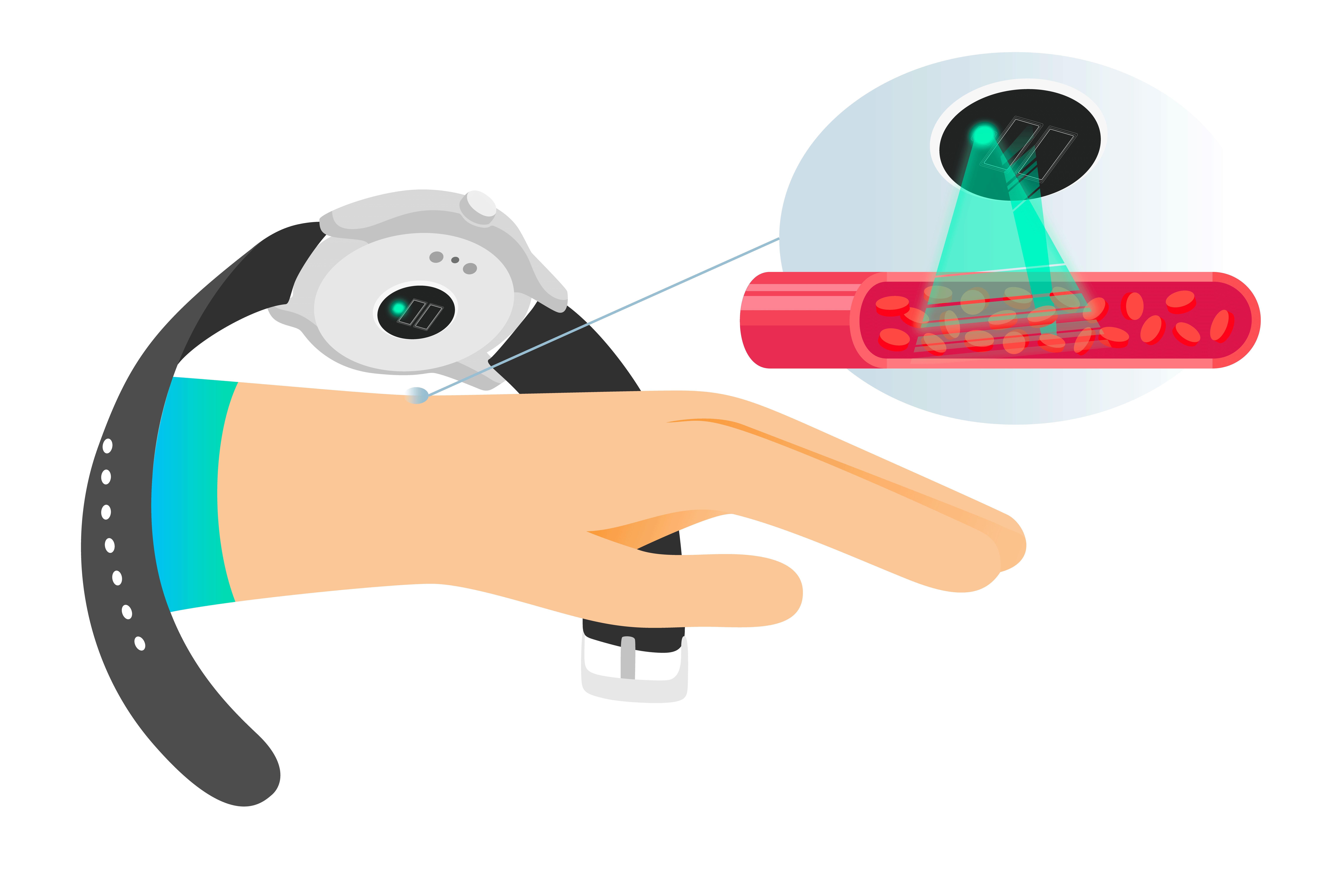
Signs of AFib detection
Your watch can detect signs of Afib. Let's see what it means.
What is AFib?
Atrial fibrillation (AFib) is an arrhythmia, an anomaly of the electrical activity of your heart. It is the most common cardiac arrhythmia and is one of the leading causes of stroke, heart failure, and cardiovascular morbidity in the world.
How are signs of AFib detected?
ScanWatch can detect AFib when recording an ECG. But it can also check for signs of AFib throughout the day and night.
ScanWatch uses a sensor called PPG (photoplethysmography) sensor that emits green light and measures its reflections on the blood vessels in the wrist. When the blood flows, the reflection of light changes.

An exclusive algorithm analyzes the signal. If your heart rate is atypical (low or high), or if an irregular rhythm is detected, you will receive a notification.
When is AFib detected?
ScanWatch regularly scans your heart, during the day, and the night! You can activate or deactivate this feature, you can also activate or deactivate the notifications and still read the information and find your signs of AFib, low or high HR episodes in the Health Mate app.
What should you do when signs of AFib are detected?
We recommend you record an ECG when you receive such a notification. If the result is confirmed, you should contact your doctor.
Recording an ECG could help confirm this alert, but as AFib is known to be an intermittent condition, results could differ.
Note that the wristband must be tight and that wearing any band other than silicone, FKM or equivalent can make it more difficult to get conclusive results.